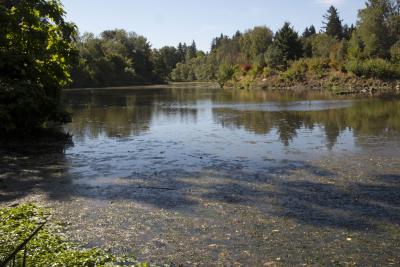- Neighborhoods
-
Community
-
- Overview History Vision Newsroom News Releases Pilot Newsletter Media Contact Projects Volunteer
- Engage Milwaukie Events City Calendar Recreation Biking in Milwaukie Parks and Trails Directory North Clackamas Parks and Recreation Reserve a Room Library
- Schools North Clackamas School District MHS Student of the Month Public Safety Police Clackamas Fire District #1 Code Compliance Emergency Preparedness Emergency Notifications Garbage & Recycling
-
- Business
- Departments
-
Useful Links
-
- Jobs Alerts & Notifications Email Subscriptions Emergency Notifications Meetings City Services A-Z Mapping & GIS
- Contact the City Staff Directory Request a Public Record Report a Code Violation Report a Pothole Report Misconduct Schedule an Inspection Documents & Forms Documents and Reports Forms, Permits, and Applications
- Helpful Links Digital Archives Library Catalog Municipal Code Purchase a Parking Permit Paperless Billing Pay a Ticket or Utility Bill Urban Forest
-
$15 Million Federal Infrastructure Grant Will Restore Kellogg Creek
The Milwaukie community will be a major beneficiary of the federal funds available through the recent Infrastructure Investment and Jobs Act. The NOAA Restoration Center is recommending $15 million - its largest grant in history - for the Kellogg Creek Restoration and Community Enhancement Project (Kellogg Project). The effort will restore threatened fish access to 15 miles of habitat in the Kellogg Creek-Mt. Scott watershed, modernize the Highway 99E bridge while improving multi-modal transportation, and provide safe pedestrian access to a restored natural area and creek that will replace the 14-acre impoundment the dam creates.
The Kellogg Project is collaboratively led by American Rivers, City of Milwaukie, North Clackamas Watersheds Council, and Oregon Department of Transportation (ODOT). The grant will be used to complete project planning, and the groups will target additional funding to complete the construction phase of the project.
“Healthy rivers and clean water provide so many benefits to our communities. We are incredibly excited to secure this funding and advance this great project with support from diverse partners. This project will deliver great value to the community, including sustainable infrastructure, environmental and cultural benefits, and a new natural area for the community to enjoy," said April McEwen, project manager at American Rivers.
Project planning will address the poor water quality and contaminated sediment that has accumulated in the lake behind the dam, create a natural stream channel from Oatfield Road to the Willamette River, modify the Highway 99E bridge, and ensure the opportunity for the local community to engage in developing the vision for public access and pertinent project elements.
“ODOT is proud to be part of the leadership team for this important environmental restoration project,” said Rian Windsheimer, ODOT’s Regional Manager. “This opportunity to restore 15 miles of habitat for threatened fish, that has been dammed up since Oregon became a State, while also bringing new federal funding for a new bridge to serve Highway 99E travelers long into the future, is a win-win for Oregon.”
“How often do you get to restore a creek that supports salmon in a city center, create a new natural area a block from a high school, improve floodplain function, create jobs upgrading an earthquake-vulnerable bridge, and improve community access to nature,” said Neil Schulman, North Clackamas Watersheds Council executive director. “This is a fantastic opportunity to restore nature and strengthen our community at the same time.”
Kellogg Dam was built in 1858, before statehood, to power a flour mill that ceased operating in 1890. After mill operations ceased, the obsolete dam and the stagnant backwater pond it created known as “Kellogg Lake” remained and has filled with sediment over time. In 1934, the dam became part of the foundation for the Highway 99E Bridge in the City of Milwaukie and has impeded fish passage and natural ecological processes ever since. In recent years, the dam has been identified as the highest-priority fish passage barrier owned by ODOT. The existing 14-acre lakebed behind the dam is predominately owned by the city. That same 14 acres will be transformed into a natural creek and floodplain, with public access points, educational opportunities, and multiple additional benefits including localized flood reduction.
A large coalition, including the Confederated Tribes of the Warm Springs Indian Reservation of Oregon, the Confederated Tribes of Grand Ronde, NOAA Fisheries, Clackamas Water Environment Services, Metro, North Clackamas Parks & Recreation District, Oregon Department of Environmental Quality, Oregon Department of Fish and Wildlife, Oregon Division of State Lands, Native Fish Society, and Natural Resources Office of Governor Kate Brown are working to advance the project.
“Removing Kellogg Dam and restoring the Kellogg watershed has been a goal of our community for decades”, says Mayor-elect Lisa Batey. “I look forward to seeing salmon thriving in lower Kellogg Creek, with the fish passage barrier removed and the creek restored.”
American Rivers is a national organization championing the effort to protect and restore all rivers, from remote mountain streams to urban waterways because healthy rivers provide people and nature with clean, abundant water and natural habitat. North Clackamas Watersheds Council is a Milwaukie-based nonprofit that works to restore North Clackamas watersheds for fish, wildlife, and people. The city owns most of the lakebed behind the dam, and the Oregon Department of Transportation inherited Kellogg Dam when Highway 99E was built atop it in 1934.


